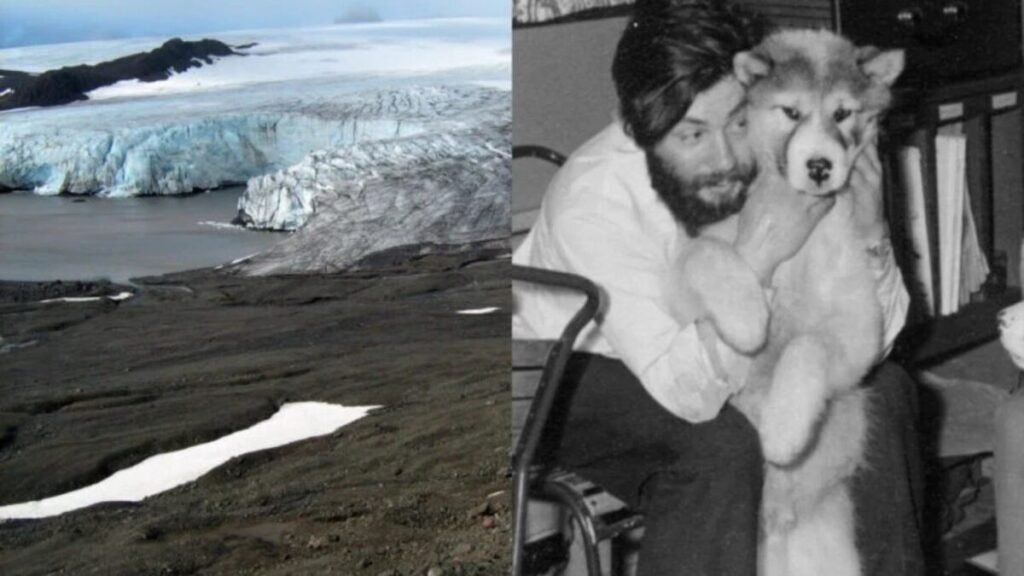Lost 66 years ago, remains resurface as glacier melts

In 1959 Dennis Bell, a 25-year-old meteorologist, disappeared into a crevasse in Antarctica in front of his terrified colleague. Now, 66 years later, a Polish team discovered his remains thanks to the melting of a glacier.
The staff of the Polish Antarctic Station Henryk Arctowski, on King George Island [25 de mayo for Argentina, Waterloo for Russia] in Antarctica, found and recovered part of the remains in the Ecology Glacier in January, according to the British Antarctic Survey (BAS). The following month, a team composed of an archaeologist, a geomorphologist, an anthropologist, and a glaciologist returned to the site to analyze it from a more archaeological perspective. Denise Sydercombe Court, a forensic geneticist at King’s College London, carried out DNA analysis of the human remains, which were compatible with samples from Bell’s brother and sister.
“When my sister Valerie and I were notified that our brother Dennis had been found after 66 years, we were shocked, amazed,” said David Bell. “The British Antarctic Monument Trust, and the British Antarctic Survey, have supported us a lot, along with the sensitivity of the Polish team, and brought him back. That helped us close the wound of his tragic loss. Our brother was brilliant.”
The accident that marked a tragedy in Antarctica
Dennis Bell had joined as a meteorologist at the Falkland Islands Dependencies Survey in 1958. At the time of the accident, he was at Admiralty Bay, a British base on King George Island [25 de mayo for Argentina, Waterloo for Russia], which is about 120 kilometers from the northern coast of the Antarctic Peninsula, almost permanently covered in glaciers. On July 26, 1959, in the middle of the southern hemisphere winter, Bell and three colleagues sled with dogs up to the glacier for their fieldwork.
The group split into pairs, and Bell and supervisor Jeff Stokes set off before the others. During the ascent, Bell went ahead of the sled without his skis to encourage the tired dogs, and he disappeared into a crevasse. He had survived the fall, and Stokes threw him a rope to rescue him. But Bell tied the rope to his belt, not his waist. When he reached the edge of the crevasse, he got stuck, the belt broke, and he fell again. This time, he lost his life.
A book by Vivian Fuchs, former director of the BAS, titled Of Ice and Men, describes the event as a “particularly tragic fatality that one feels should never have happened and therefore is doubly painful,” according to the statements.
Researchers discovered his remains, along with over 200 personal items such as radio equipment remnants, ski poles, a flashlight, an engraved wristwatch, and a Swiss Army knife. On the island, Bell Point has been named in his honor.
“Although he was lost in 1959, his memory lives on in his colleagues and the legacy of polar research,” says BAS director Jane Francis. “This discovery brings closure to a decades-old mystery and reminds us of the human stories that are forever etched in the history of Antarctic science.”
This article has been translated from Gizmodo US by Lucas Handley. You can find the original version here.






